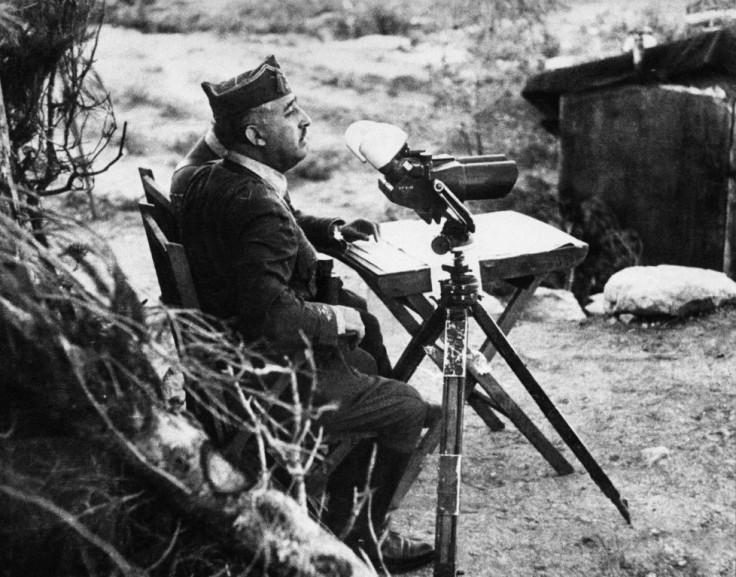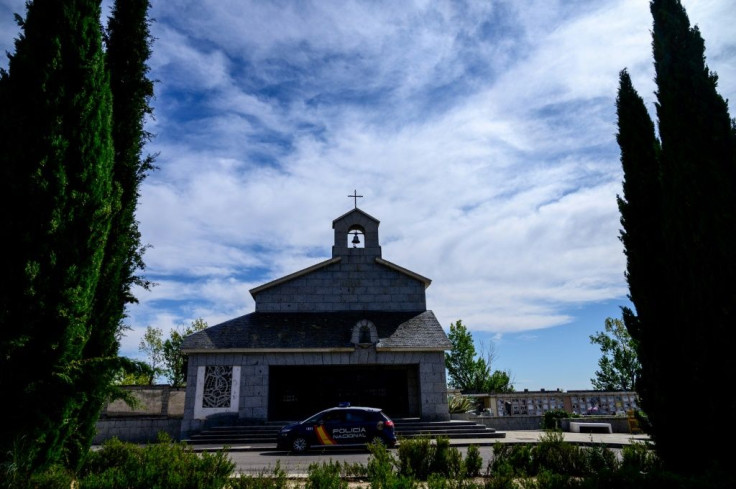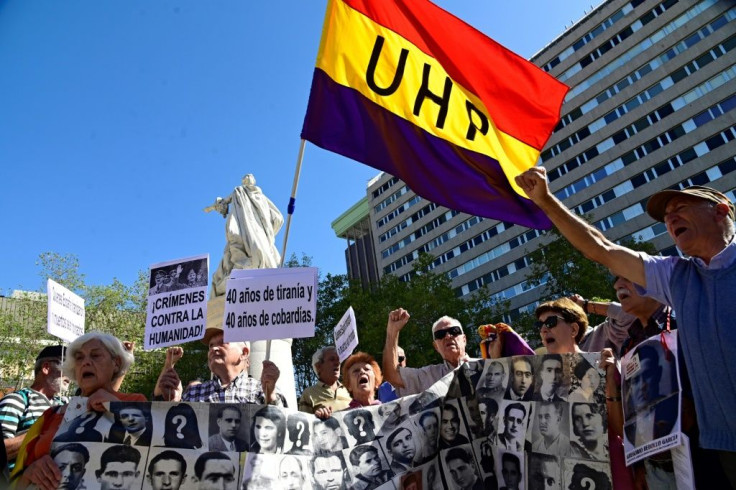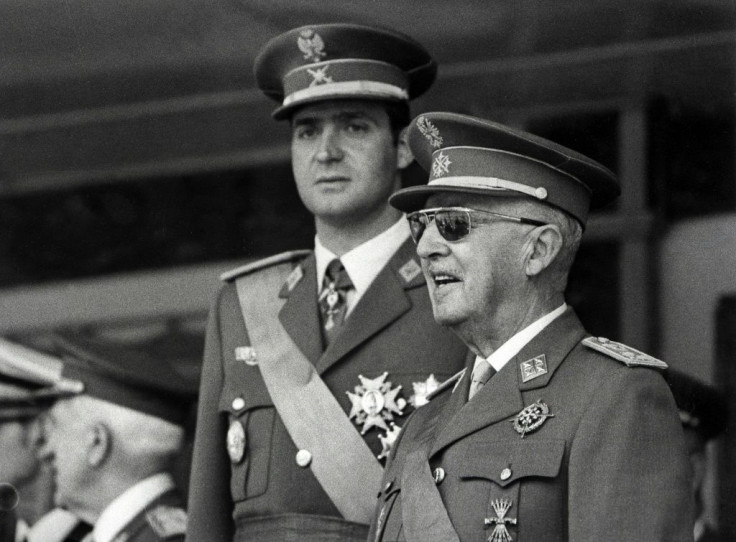Spain's Francisco Franco: 36 Years Of Iron Rule

For 36 years General Francisco Franco, whose remains are to be exhumed on Thursday, ruled Spain with an iron fist during one of Europe's longest dictatorships.
He assumed power after Spain's 1936-39 civil war in which his Nationalists defeated Republicans, leaving the country in ruins and mourning hundreds of thousands of dead.
Military man
Franco was born into a navy family on December 4, 1892 at El Ferrol in the northwestern province of Galicia.
At the age of 14 he entered the military's Toledo Infantry Academy, earning the rank of second lieutenant by 17.

Nicknamed "Franquito" because of his short stature and delicate voice, he asked to be sent to Morocco where he was wounded, but also distinguished himself on the battlefield.
He married Carmen Polo in 1923 and was a general by 1926, at age 33 the youngest in Europe to have achieved this rank.
Even as a young man, he possessed a "calm self-control, practical and impersonal attitude, courageous example, and insistence on order and discipline," US historian Stanley Payne wrote in "The Franco Regime" (1987).

In 1934 he led from Madrid the repression of a revolutionary miners' strike in the northern region of Asturias.
Victory and repression
In 1936 Franco was one of the leaders of a military revolt against a democratically elected leftist government that heralded the start of the civil war.

With the help of Germany's Adolf Hitler and Italy's Benito Mussolini, by 1939 his Nationalist troops occupied all of Spain, having put down Republican resistance.
Adopting the title of "El Caudillo' (The Leader), Franco persecuted political opponents, repressed the culture and language of Spain's Basque and Catalan regions, censured the media and installed a strong government as he tried to promote self-sufficiency.
In the five years after the war ended in 1939, Franco and his right-wing regime, supported by the Roman Catholic Church, had tens of thousands of Republican prisoners executed.
Franco managed to keep the country out of World War II but his leanings towards the Axis powers of Adolf Hitler later led to his ostracisation by the victorious Allies.
US ties
During the Cold War years, anti-communist Franco's relations improved with the United States, which opened military bases there. It was admitted to the United Nations in 1955.
Faced with hostile international opinion, Franco never travelled abroad. Instead, he led an austere existence at his residence, Madrid's Pardo Palace, with his wife and daughter.
In 1969 Franco named Prince Juan Carlos as his successor. "Franco himself knew that Francoism would not survive him," Juan Carlos would say later.
In September 1975 a firing squad executed the last six men to be sentenced to death during Franco's dictatorship, despite international protests.
On November 20, 1975, Franco himself was dead, following a protracted illness and aged nearly 83.
Juan Carlos was proclaimed king two days later.
© Copyright AFP 2024. All rights reserved.





















